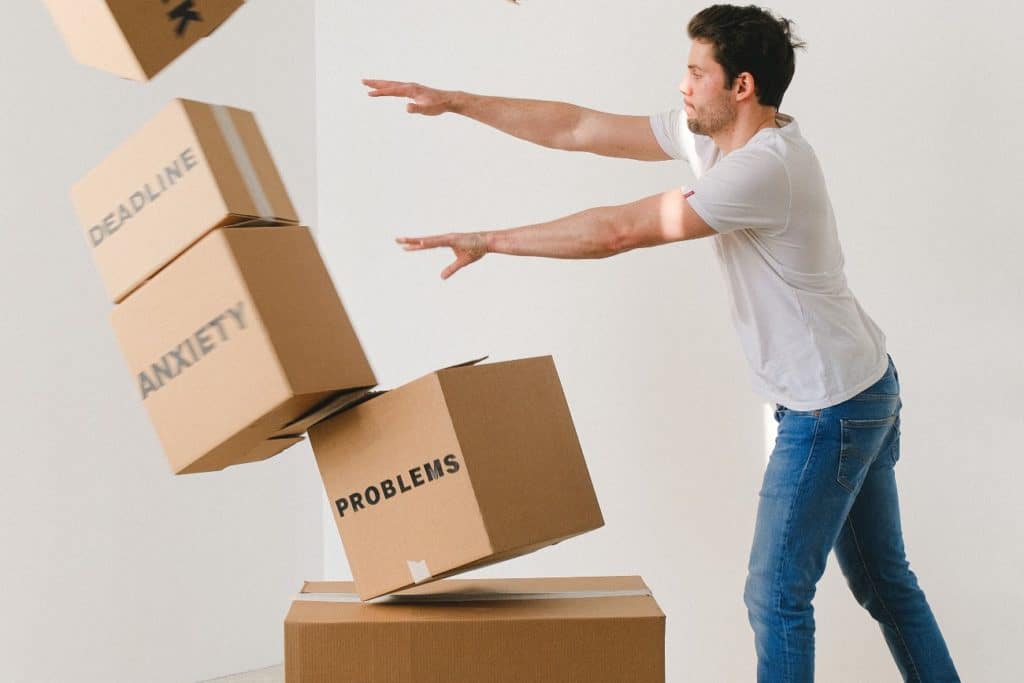Anxiety and depression are two of the most common mental health disorders, and neglecting the symptoms can lead to severe outcomes. Knowledge is power, and learning as much as possible about what triggers anxiety or depression is well-advised. A trigger is also known as a stressor because it is an action or situation that usually leads to an adverse reaction or situation. In other words, a trigger makes someone do something or makes something happen.
You probably think that not all triggers are negative, and that is certainly correct. However, this article will address triggers as actions that promote or lead to negative mental health responses. For example, you may not be aware that caffeine is a prominent trigger that induces anxiety. As much as we love our coffee, too much of it can give us anxiety or, at the very least, leave us a bit shaky for a few hours.
How Do I Know What Triggers to Look For?
Many factors that trigger depression also trigger anxiety, and both disorders often run concurrently. Consequently, anxiety and depression are triggers for one another. Co-occurring disorders are especially concerning and need treatment as soon as possible by seeking a healthcare or mental health professional. A list of some anxiety and depression triggers is below:
- Caffeine. Again, this trigger tops the list for anxiety but also affects depression.
- Stress
- Money problems
- Unorganized or unkempt home or workspace
- Social situations
- Lack of sleep
- Self-neglect
- Difficult work environment or culture
- Physical illness
Irrational beliefs and repetitive, negative thoughts can not only trigger anxiety and depression but can also lead to physical illnesses like diabetes. Of course, the above is not a definitive list. Thinking about your triggers may help curtail some of your anxiety. Be sure to seek treatment if triggers become stronger or more prevalent in your daily life.
Treatment for Anxiety and Depression
Treatments for anxiety and depression are many and varied. Persons with either or both disorders must see a healthcare professional for effective treatment. A physician, mental health professional, or therapist will diagnose and prescribe treatment designed specifically for each individual.
Treatment may include, but is not limited to, one or more of the following:
- Medication: When antidepressants or anxiety medications are prescribed, the patient should be monitored by a physician or mental health professional
- Psychotherapy (talk therapy): Collaboration between the patient and therapist to agree on treatment
- Cognitive-behavioral therapy (CBT): Evidence-based form of psychotherapy that is especially effective in treating depression
- Acceptance and commitment therapy (ACT): A form of psychotherapy based on mindfulness practices.
- Dialectical behavior therapy (DBT): A form of psychotherapy that focuses on teaching coping skills using mindfulness and distress tolerance skills that are especially effective in treating anxiety
- Holistic therapy: Uses mindfulness-based stress reduction (MBSR), meditation, art, and aromatherapy congruently with evidence-based therapy to treat the whole person
Co-occurring Alcohol or Substance Use
When a person presents with co-occurring anxiety or depression and alcohol or substance abuse, the symptoms are more severe and create a more serious disability than the disorders present alone. Each disorder impacts the accompanying one, and so forth.
Treatment for these co-occurring disorders must be given concurrently, as treating one will not improve the other. To further complicate things, substance use disorders may accompany several disorders at any time, making it crucial to treat all known co-occurring disorders simultaneously if possible. Treating separately could lead to prolonged treatment with less chance for a successful recovery.
Anxiety and Depression During Recovery
Certain levels of anxiety and depression are almost a certainty during treatment and recovery from alcohol or substance addiction. However, a well-designed treatment plan including some of the above-mentioned treatments will help minimize many symptoms. If you are in treatment or recovery, practice self-care through exercise, eating healthily, and self-reflection or meditation to help calm your anxiety and avoid depression.
Although alone time is important for everyone, make sure you spend time with a peer, a loved one, or a trusted friend during your recovery. Everyone needs social stimulation and knowing that someone cares. Journaling or other forms of creativity are also effective self-care that may be calming while keeping your thoughts focused.
Writing may also help you organize your thoughts and feelings. Other self-expressive activities, such as dancing, playing a musical instrument, painting, sculpting, etc., may help pass the time in creative, fun ways.
Helping a Loved One With Anxiety or Depression
The best thing you can do for a loved one who shows anxiety or depressive symptoms is to ask if you may talk privately with them. Explain your observations openly and forthrightly to them if they are amenable to a conversation. Be patient with them and wait for their response. Actively listen to them without interruption. Offer assistance and suggestions if they are receptive. You may be the lifeline for your loved one to secure the help they need.
Our commitment here at SoCal is to your overall well-being. We are dedicated to treating mental health challenges and addiction. Your mental health is a priority we take very seriously. Anxiety and depression often accompany other co-occurring disorders, and we treat the whole person. Our addiction treatment and mental health programs are specifically designed for your individual needs. We create the most effective plan for each unique person and their needs, and our staff follows through from diagnosis to treatment and recovery. Our professional staff is here to meet your needs for mental health, substance abuse, recovery, and relapse. Don’t struggle by yourself when resources are available to you. Call us at (888) 312-0219 for help.












